QuestionQUESTION: I have a female Manx cat that is 1 1/2 years old. We adopted her at 8 weeks, and she has been spayed. About 8 months ago I noticed that her favorite chairs that she naps in during the day had a musty stinky smell to them, it was not urine, but what we later learned from a vet to be her scenting with her anal glands. She is now scenting in any spot that she frequently likes to sleep at. In the beginning it was limited to just the chairs, but now it is on my daughter's bed and a couple of other spots she likes. What can we possibly do to stop her from ruining all of our furniture? Is there some sort of disciplinary action we can take with her? We do not want to get rid of this animal, but she is slowly destroying our furniture and carpets! By the way we did take her to the vet to rule our a urinary tract infection, which of course came back negative. So there is definitely no medical problems. Help!!!!!!!! What can we do to save our cat and the house from this awful smell?
ANSWER: Kerry,
I'm not entirely convinced that your vet should have considered testing for a bladder infection prior to evacuating the anal glands as these glands can cause pain, itching and general discomfort in the cat's back end if they are infected, impacted or there is a tumor in the general area. In order to understand what's happening and why I'll give you a brief description of anal glands and why some cats seem to have theirs evacuate in less than pleasant places. Cats have scent glands located on either side of their anus that can be evacuated involuntarily when they are frightened or in some cases these glands become impacted and/or infected which can lead to a cat scooting across the floor, furniture, etc to try and alleviate the discomfort. When all goes well the anal glands evacuate fully whenever the cat has a bowel movement as kind of a kitty calling card meant to communicate to other cats that a specific territory has already been claimed. If your kitty has been licking her behind more frequently than she needs to for personal hygiene or she scoots on her bottom across floors, furniture, etc there's a good chance that she may need to have her anal glands expressed by the vet or an assistant at the vet clinic. In the majority of cases cats will express their anal glands as they have a bowel movement although they can evacuate these glands when frightened. Your vet or groomer can teach you how to evacuate the anal glands, although I tend to prefer that a professional does this due to the unpleasant smell that tends to linger, especially if some of the contents of the anal glands ends up on cloth or skin. If your kitty does have an infection in her anal glands you will probably be given a course of antibiotics that will help to clear the problem up. I think that you may find a visit to a holistic vet worthwhile, these professionals are trained in conventional medicine as well as one or more alternative therapies such as homeopathy, acupuncture or even massage. I suspect that homeopathy will be useful in dealing with this issue and hopefully preventing further accidental expressions of your cat's anal glands. My youngest cat has ongoing issues with her anal glands and when our family vet (who is a holistic practitioner) examined her she was able to deal with the cause of Kizmit's discomfort and since then we haven't had any further malodorous surprises. Expressing anal glands is generally a quick and painless procedure for the cat, if your kitty is painful in the back end she may need to be sedated so that she doesn't experience any unnecessary discomfort and the vet or staff at your vet clinic won't be injured. Your vet may recommend a dietary change in an attempt to prevent any further issues with your cat's bottom. Granted when a cat's anal glands are emptied outside of the litter box it's unpleasant, however this is not something that your kitty is doing to upset you or deliberately offend you, in all likelihood she's experiencing some discomfort which is prompting her to partially express her anal glands.
---------- FOLLOW-UP ----------
QUESTION: Thank you so much for the quick response back. After reading it, I found the need to write back with a follow up to your answer.... the information you sent us is generally what our vet had expressed to us, our kitty Bella was at the vet just 1 month ago, and she inspected the anal glands, and did not feel there was any infection or impaction of the glands. My concern is that she is scenting her comfort areas. These are the areas where she naps during the day while we are gone for the most part, and we have never seen her scoot or show any signs of discomfort in her anal area. I did not mention in the first question either that our Bella is VERY territorial! She hisses and growls at anyone that comes into our house except for my husband, myself, and my two small children. I have an older daughter who comes home every two weeks, and she cannot enter the same room as Bella without being hissed at. She is not being provoked in any way, she is just not ok with anyone outside of the immediate family. We are so frustrated, and don't want to get rid of the cat, but she is sooooo trying our patience. The main concern though is the scenting and is there really any behavioral methods that will stop her being that it is not a medical issue? I so appreciate your taking the time to help, thank you!
AnswerKerry,
Anal glands can spontaneously express themselves when enough pressure builds up within them. I don't think that this is a behavioral issue so much as something that could potentially be corrected with appropriate medical care. I would advise that you check into the possibility of taking Bella to a holistic vet who can treat her with conventional medicine as well as alternative therapies like homeopathy. I have yet to see a cat voluntarily express their anal glands to mark their territory, it's likely that Bella's anal glands need to be expressed by your vet or groomer which would likely stop the less than pleasant odor left behind from the contents of these glands.

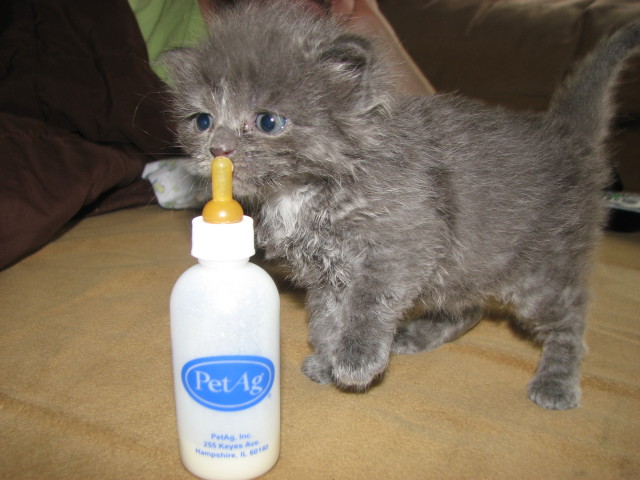 bottle feeding orphan kitten.
QuestionQUESTION: I rescued my kitten when he was 2 wee
bottle feeding orphan kitten.
QuestionQUESTION: I rescued my kitten when he was 2 wee
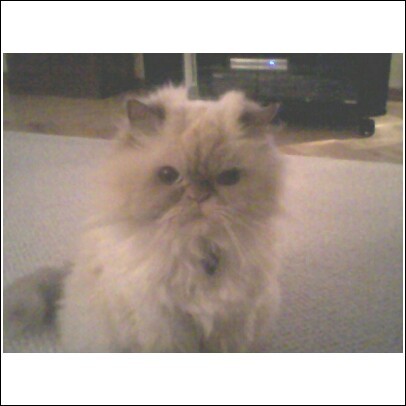 Killing Fleas on Persians
Question
Chloe Ruth
I simply cannot kill off the
Killing Fleas on Persians
Question
Chloe Ruth
I simply cannot kill off the
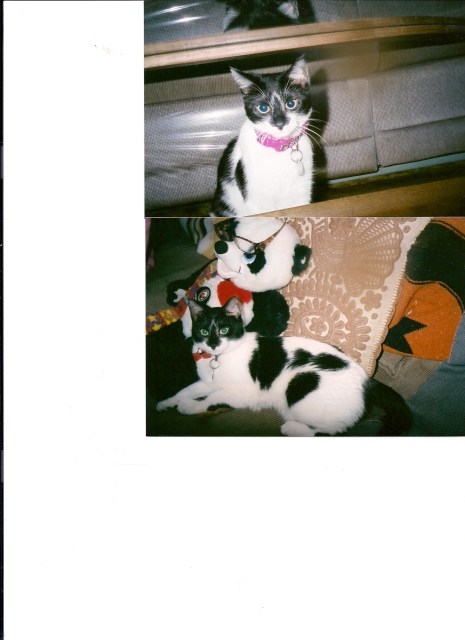 Kate
Question
CREAM PUFF
Hello !
About 2 years ago I
Kate
Question
CREAM PUFF
Hello !
About 2 years ago I
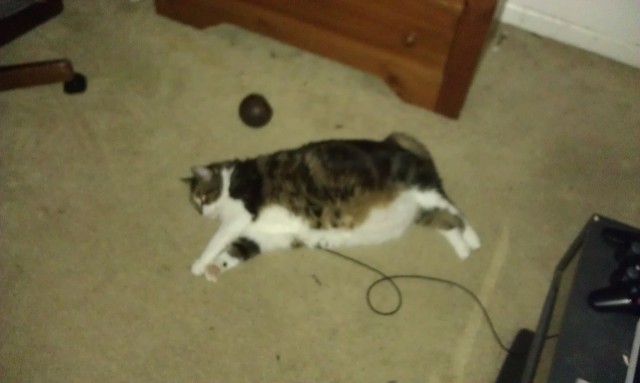 what type of cat is mine?
Question
zella
Ok this cat is very big one of bi
what type of cat is mine?
Question
zella
Ok this cat is very big one of bi
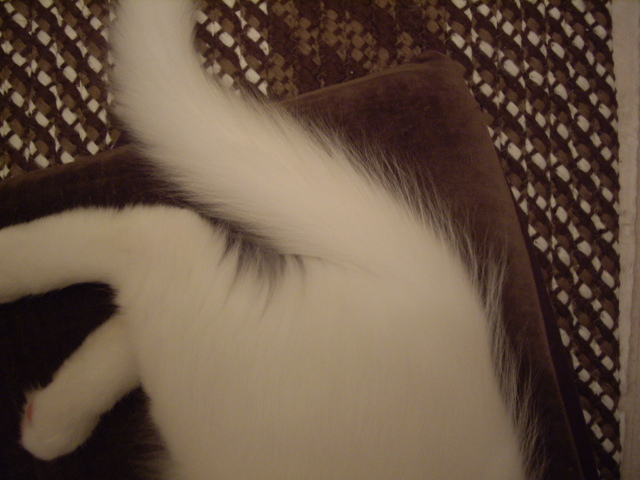 giardia coccidia
Questionthin, spiny guard hair
QUESTION: I took
giardia coccidia
Questionthin, spiny guard hair
QUESTION: I took